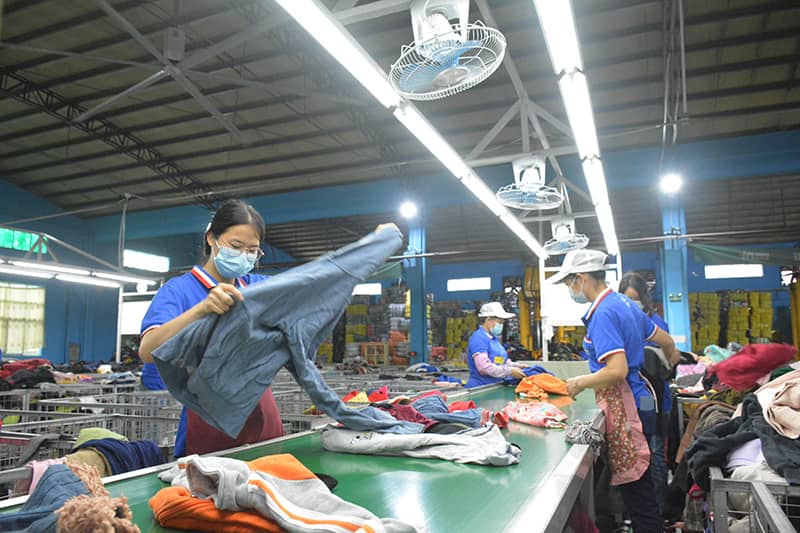As the demand for affordable clothing continues to rise, the Guinea-Bissau used clothes market has positioned itself as a lucrative avenue for B2B importers. With a growing population and an increasing reliance on second-hand apparel, the market presents excellent opportunities for bulk buyers looking to expand their operations. In this article, we delve into what makes Guinea-Bissau an ideal destination for the used clothing trade.

Table of Contents
1. Introduction to the Guinea-Bissau Used Clothes Market
The Guinea-Bissau used clothes market has become a thriving sector in West Africa, driven by increasing demand for affordable, quality second-hand clothing. For B2B importers, this market offers a gateway to profitable opportunities while supporting sustainable practices in the global fashion industry. By understanding the unique dynamics of this market, businesses can position themselves to benefit from its growth and contribute to its development.
Overview of the Market
Guinea-Bissau’s used clothes market serves a significant portion of the population, where purchasing power is often limited, and second-hand apparel provides an economical alternative to new clothing. The local market is diverse, with demand spanning casual wear, children’s clothing, and accessories, catering to both urban and rural areas.
Why It’s a Promising Sector for B2B Importers
For importers, Guinea-Bissau presents a favorable entry point into West Africa’s growing second-hand trade. The country’s strategic coastal location facilitates easier shipping logistics, and its community reliance on affordable clothing ensures consistent demand for imported used apparel.
2. Understanding the Demand for Used Clothes in Guinea-Bissau
The demand for Guinea-Bissau used clothes is rooted in the country’s socio-economic realities. With a limited domestic textile industry, second-hand clothing has become the primary source of affordable apparel for most households. This demand is sustained by cultural acceptance and the growing need for economic clothing options.
Key Factors Driving Demand
Economic challenges, including low income levels, have made second-hand clothing a necessity for many in Guinea-Bissau. Imported used clothes offer both affordability and variety, filling a gap that local production cannot meet.
Consumer Preferences and Trends
Shoppers in Guinea-Bissau prioritize durable, stylish, and functional clothing. Items such as jeans, T-shirts, and children’s outfits are particularly popular, reflecting a demand for practical yet fashionable apparel that suits daily needs.
3. Sourcing Guinea-Bissau Used Clothes: Tips for B2B Buyers
Sourcing Guinea-Bissau used clothes requires a strategic approach to ensure quality and reliability. For B2B importers, building relationships with reputable suppliers and understanding local quality standards are critical to long-term success in this market.
Finding Reliable Suppliers
To source quality used clothes, importers should partner with established suppliers who have experience in exporting to West African markets. Vetting suppliers for compliance with local and international trade standards can help ensure a steady flow of reliable products.
Quality Standards and Bulk Purchasing Considerations
The Guinea-Bissau used clothes market values items that are clean, undamaged, and wearable. Importers should consider bulk purchasing to minimize costs while adhering to quality expectations, ensuring their goods meet the preferences of local buyers.
4. Logistics and Supply Chain in Guinea-Bissau Used Clothes Trade
Navigating the logistics of the Guinea-Bissau used clothes trade involves careful planning, from shipping to customs clearance. Importers must address logistical challenges while optimizing the supply chain for efficiency and cost savings.
Shipping and Customs Procedures
Shipping used clothes to Guinea-Bissau typically involves containerized transport via regional ports, such as Bissau. Familiarity with customs regulations and documentation requirements is essential to ensure smooth clearance and avoid delays.
Addressing Logistical Challenges
Infrastructure limitations in Guinea-Bissau, such as underdeveloped road networks, can pose challenges to distributing goods within the country. Importers can overcome these hurdles by working with local logistics partners who have experience in navigating these conditions.
5. Opportunities and Challenges for Importers
The Guinea-Bissau used clothes market presents immense opportunities for growth, but importers must also contend with specific challenges. Success in this market requires balancing profitability with overcoming logistical and cultural barriers.

Benefits of Entering the Market
Importing used clothes into Guinea-Bissau allows businesses to tap into a consistent demand, with opportunities to build strong relationships in a growing sector. The market also aligns with global trends promoting sustainable practices.
Common Hurdles and Solutions
Challenges such as fluctuating import taxes, competition, and infrastructure issues require innovative solutions. Importers can mitigate these risks by staying updated on policy changes and fostering local partnerships to streamline operations.
6. Sustainability in the Guinea-Bissau Used Clothes Industry
Sustainability is a cornerstone of the Guinea-Bissau used clothes industry, promoting environmental conservation and economic resilience. Importers can play a role in advancing circular economy principles while meeting the rising demand for affordable clothing.
Promoting Circular Economy Principles
By importing second-hand clothes, businesses contribute to reducing textile waste globally. This aligns with Guinea-Bissau’s increasing awareness of environmental issues and the benefits of recycling and reusing resources.
Environmental and Social Impact
The used clothes industry in Guinea-Bissau provides economic opportunities for local retailers and wholesalers, fostering job creation while reducing the environmental footprint of fast fashion.
7. Conclusion and Actionable Steps for Importers
The Guinea-Bissau used clothes market is a vibrant and growing sector, offering substantial rewards for importers who understand its dynamics. By leveraging reliable suppliers, addressing logistical challenges, and embracing sustainability, businesses can thrive in this promising market.
Key Takeaways
Guinea-Bissau’s used clothes market is ripe with opportunities for B2B importers, driven by consistent demand and an environmentally conscious consumer base.
Next Steps to Enter the Market
Importers looking to enter this market should start by identifying reputable suppliers, researching local regulations, and building partnerships with trusted logistics providers to ensure a seamless operation.






